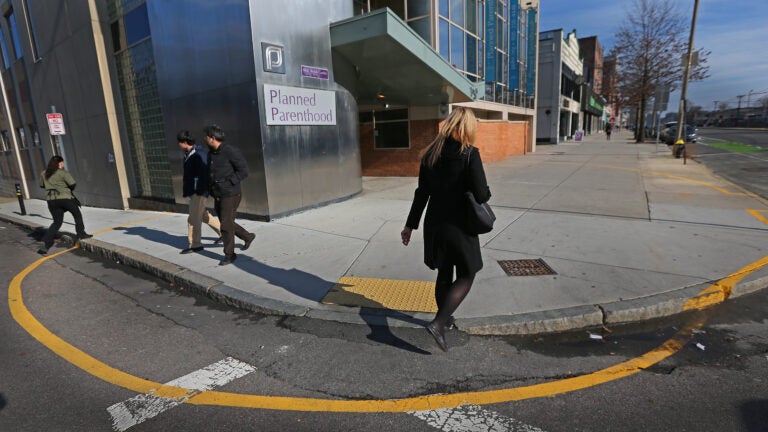More out-of-state patients are traveling to Mass. for abortions, study says
Health
Researchers saw an increase in out-of-state residents seeking abortions as well as use of charitable funding to pay for medical and travel expenses.

In post-Roe America, Massachusetts is seeing a significant increase in the number of out-of-state people traveling here to get abortions — some of them from states where the procedure is mostly banned.
A study led by researchers from Brigham and Women’s Hospital reported an increase of 37% in patients from out of state seeking abortions in the first four months post-Roe, compared to the number researchers predicted in that same span had Roe not been overturned. Some patients traveled from as far away as Texas.
“We’ve always had abortion travelers from New England, but now we see that we have people coming from much farther away like Texas, Louisiana, Florida, or Georgia,” said Elizabeth Janiak, one of the study’s authors and an assistant professor of reproductive biology at Brigham.
The research was published Sept. 6, 2023, by Jama Network, an open access medical journal, to see if abortion procedures were increasing, where people were coming from to get the procedure in Massachusetts, and how they were covering the medical and travel costs.
The researchers looked at electronic medical records of more than 45,000 abortion procedures, from January 2018 to October 2022. Roe v. Wade was overturned by the U.S. Supreme Court in the Dobbs v. Jackson Women’s Health Organization case of June 2022, which prompted a wave of anti-abortion laws quickly passed in states in the South and Midwest.
Of the 45,797 abortion procedures on record during this time, most of them were abortion care for in-state patients, at 44,153. More than 1,500 of those records came from out-of-state patients. These records came from Planned Parenthood League of Massachusetts, which provides more than half of all abortion procedures in the state.
The study also noted that many of the out-of-state patients were from other New England states — a region where there are no bans, and all but New Hampshire have official protections for the procedure.
In the four months after Roe was overturned, 3,237 total procedures were performed, and 155 were for out-of-state patients.
The month with the highest number of procedures done was July, just a month after Roe was overturned: 865 total and 47 for out-of-state patients. The data also show that there were more abortions performed than expected overall and for out-of-state patients in the four months post-Roe: 190 and 45 more procedures, respectively.
The study also looked at the amount of charitable funds used by patients seeking abortions before and after Dobbs. For patients from Massachusetts, the use of such funds increased from 1.9% of sampled patients to 3.1%.
The increase of using funds was even greater for those traveling state lines to seek an abortion, from 8.4% of sampled patients pre-Dobbs to 18.3% in the four months after Roe was overturned.
“Interstate travelers face elevated financial stress from additional travel expenses and the stigma of abortion, which prompts many people to be secretive about their abortion experiences,” Janiak said. “We wanted to understand how the allocation of funding for abortion care and travel by various non-profits and charities changed after Dobbs, since abortion can cost hundreds or thousands of dollars.”
Massachusetts isn’t unique in the increases recorded post-Roe. States that border states with abortion bans have also seen an increase in abortion procedures since the historic court decision, and some charitable organizations that fund abortion procedures and travel reported a surge in donations in the weeks after the Dobbs decision.
Newsletter Signup
Stay up to date on all the latest news from Boston.com
Originally posted 2023-09-07 20:24:33.